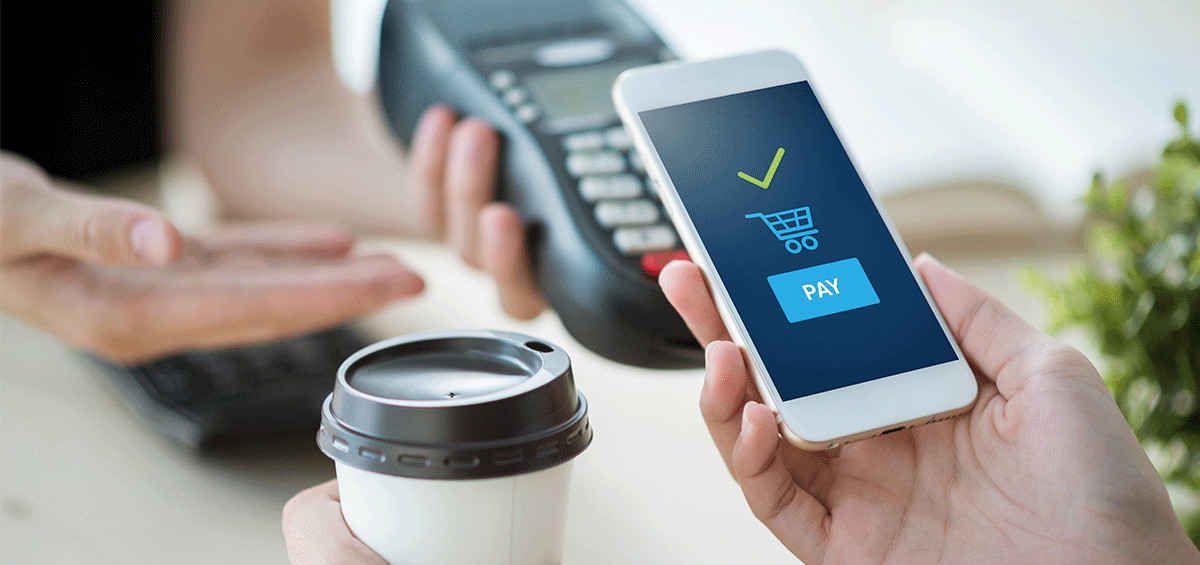After a slow start, mobile payment usage is growing in the United States. In 2019, an estimated 64 million Americans (about 29% of smartphone users) made a point-of-sale proximity payment with their mobile phones at least once in the previous six months. Mobile peer-to-peer applications, which allow transactions between individuals, have been even more widely adopted, with 69.2 million users in 2019.1
Younger people have been the fastest to adopt these new technologies, but mobile payment apps offer features that could be helpful for consumers of any age.
Proximity Payments
A proximity payment involves using your mobile phone to pay at a point-of-sale terminal, typically by scanning a barcode generated on your phone or tapping the phone on the terminal (or holding it close) using near-field communication technology. This allows you to use a mobile phone instead of a credit card or debit card. The mobile payment application is connected to your bank account, a credit card, or a balance within the app.
Proximity payments were originally dominated by proprietary applications controlled by mobile phone manufacturers, but apps offered by specific merchants are now competing with the more general apps. Banks and credit-card companies are also entering the sector as they face competition from new technologies.
Peer-to-Peer Payments
Whereas proximity payments perform a similar function to a credit card or debit card, peer-to-peer payments can replace cash or a personal check.
For example, one member of a group might pay the bill at a restaurant or one roommate might pay the rent, and others can transfer their shares of the payment to the payer through a peer-to-peer application. Such applications are also useful for transferring funds to college students. The payment app is typically connected to the bank accounts of both parties.
Security Concerns
More than half of consumers across all age groups express concerns about the security of personal information when using mobile payment technology.2 With proper precautions, however, paying with your phone could be more secure than paying with plastic.
Most mobile payment apps generate random numbers or tokens, so the merchant does not receive your underlying financial information. (Linking to a credit card offers greater protection from fraud than a debit card or bank account.) Strong passwords and fingerprint access or facial recognition on mobile phones add another layer of protection. However, it’s important to be vigilant against phishing or malware attacks, just as you would with your computer.
1–2) eMarketer, 2019
Copyright 2006- Broadridge Investor Communication Solutions, Inc. All rights reserved.
Broadridge Investor Communication Solutions, Inc. does not provide investment, tax, or legal advice. The information presented here is not specific to any individual’s personal circumstances.
To the extent that this material concerns tax matters, it is not intended or written to be used, and cannot be used, by a taxpayer for the purpose of avoiding penalties that may be imposed by law. Each taxpayer should seek independent advice from a tax professional based on his or her individual circumstances.
These materials are provided for general information and educational purposes based upon publicly available information from sources believed to be reliable—we cannot assure the accuracy or completeness of these materials. The information in these materials may change at any time and without notice.
*Non-deposit investment products and services are offered through CUSO Financial Services, L.P. (“CFS”), a registered broker-dealer (Member FINRA / SIPC) and SEC Registered Investment Advisor. Products offered through CFS: are not NCUA/NCUSIF or otherwise federally insured, are not guarantees or obligations of the credit union, and may involve investment risk including possible loss of principal. Investment Representatives are registered through CFS. Coastal Federal Credit Union has contracted with CFS to make non-deposit investment products and services available to credit union members.
CFS representatives do not provide tax or legal guidance. For such guidance please consult with a qualified professional. Information shown is for general illustration purposes and does not predict or depict the performance of any investment or strategy. Past performance does not guarantee future results.
Trust Services are available through MEMBERS Trust Company. CFS* is not affiliated with Members Trust Company.






